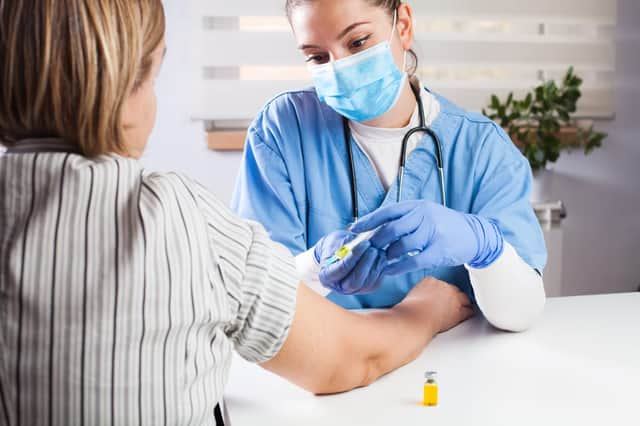You could be paid £4,500 to contract Covid as part of a new research project
This article contains affiliate links. We may earn a small commission on items purchased through this article, but that does not affect our editorial judgement.


Up to 90 volunteers will be deliberately infected with Covid-19 in the UK, after scientists were granted ethical approval to carry out the world’s first “human challenge trials”.
The Government has invested more than £30 million into the project, which researchers hope will allow them to work out at exactly what point Covid becomes infectious.
Advertisement
Hide AdAdvertisement
Hide AdParticipants will be paid around £4,500 to take part in the trials, which will last for 17 days, provided they are no longer infectious. They will then be monitored through follow-up appointments over a longer period.
How will the trial work?
The human challenge trials will take place in a biosecure research unit at the Royal Free Hospital in London.
Only people who are particularly healthy with no underlying conditions can take part, as well as those who have already had the virus. Volunteers will be screened and tested extensively over the first couple of days to verify all this.
On the third day of the trial, volunteers will have a small amount of liquid dropped onto their nose containing the coronavirus, and be instructed to lie flat on their backs for half an hour.
Advertisement
Hide AdAdvertisement
Hide AdFor the next two weeks the only contact participants will have with other people will be when researchers in full PPE carry out a few tests and check on them.
Participants will get ‘a nice view of London’
Researchers also want to understand more about the impact of the virus on cognitive function, so those taking part will complete regular tests on iPads.
The volunteers will all stay in secure en-suite rooms on the top floor of the hospital, which the study’s chief investigator says will provide them with “a nice view of London”.
Dr Chris Chiu, of Imperial College London, said that it is hoped the trial will provide more information about mild and asymptomatic cases, which are thought to be a significant factor in spread.
Advertisement
Hide AdAdvertisement
Hide AdSpeaking to The Times, he said: “Human challenge studies could also be pivotal in helping to shape the timings and doses of existing vaccines, finding out how long one dose is protective for, and if they are effective against new variants of the virus.”
You can find out more information about the trial and register your interest here.